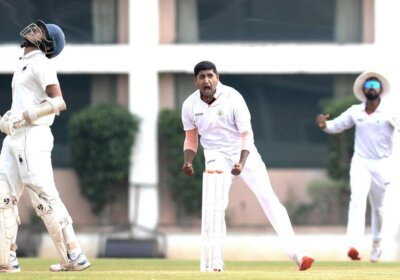The authorities arrived at the TADA court with Tunda, Irfan, and Hameeduddin around 11:15 am on Thursday, under strict security measures. These individuals were implicated in the series of train bombings across Lucknow, Kanpur, Hyderabad, Surat, and Mumbai on December 6, 1993.
In a recent development, Abdul Karim ‘Tunda’ (80) was acquitted by a special court in Ajmer concerning the 1993 serial blasts. Meanwhile, Irfan (70) and Hameeduddin (44) have been handed life sentences.
Legal representatives for the accused have expressed intentions to contest the verdict, particularly for Irfan and Hameeduddin, with an appeal to the Supreme Court in the works.
According to Abdul Rashid, the defense counsel, Irfan, who is approximately 70% paralyzed, has spent about 17 years in custody, while Hameeduddin has been imprisoned for 14 years.
The 1993 bombings resulted in two fatalities and numerous injuries across five cities where trains were targeted. The Central Bureau of Investigation (CBI) consolidated all cases and referred them to the TADA court in Ajmer back in 1994, where the accused have been incarcerated since.
The repercussions of the 1993 bombings reverberated across India, leaving scars on the affected communities and igniting debates on security measures and counterterrorism strategies. Families mourned the loss of loved ones, while survivors grappled with physical and psychological wounds that would endure for years to come.
The 1993 Bomb Blast Judicial Saga
The legal saga surrounding the accused stretched on for decades, with hearings, appeals, and testimonies shaping the narrative of justice sought by the victims and the state. The complexity of the case, coupled with its historical significance, drew attention from legal scholars, human rights advocates, and the media, amplifying the calls for transparency and accountability within the judicial process.
As the wheels of justice turned, questions emerged about the effectiveness of anti-terrorism laws, the treatment of prisoners, and the challenges of prosecuting cases with extensive reach and intricate webs of evidence. Public discourse oscillated between demands for swift justice and calls for due process, highlighting the delicate balance between security imperatives and civil liberties in a democratic society.
The TADA court proceedings in Ajmer served as a focal point for the nation’s collective memory, reminding citizens of the resilience in the face of adversity and the pursuit of closure in the aftermath of tragedy. The courtroom dramas unfolded against the backdrop of societal transformation, technological advancements, and evolving geopolitical landscapes, underscoring the enduring relevance of historical events in shaping contemporary narratives of identity and justice.
As the legal battles continued, communities affected by the bombings found solace in solidarity, drawing strength from shared experiences and collective efforts to rebuild shattered lives. Civil society organizations, religious leaders, and grassroots activists rallied around the cause of reconciliation and healing, advocating for empathy and understanding in a climate marked by fear and uncertainty.
Ultimately, the legacy of the 1993 bombings transcended individual trials and verdicts, resonating as a testament to the resilience of the human spirit and the enduring quest for truth and reconciliation in the face of adversity. As the accused navigated the corridors of justice, their stories intertwined with those of the victims, weaving a tapestry of remembrance and resilience that would endure for generations to come.























Leave a Reply